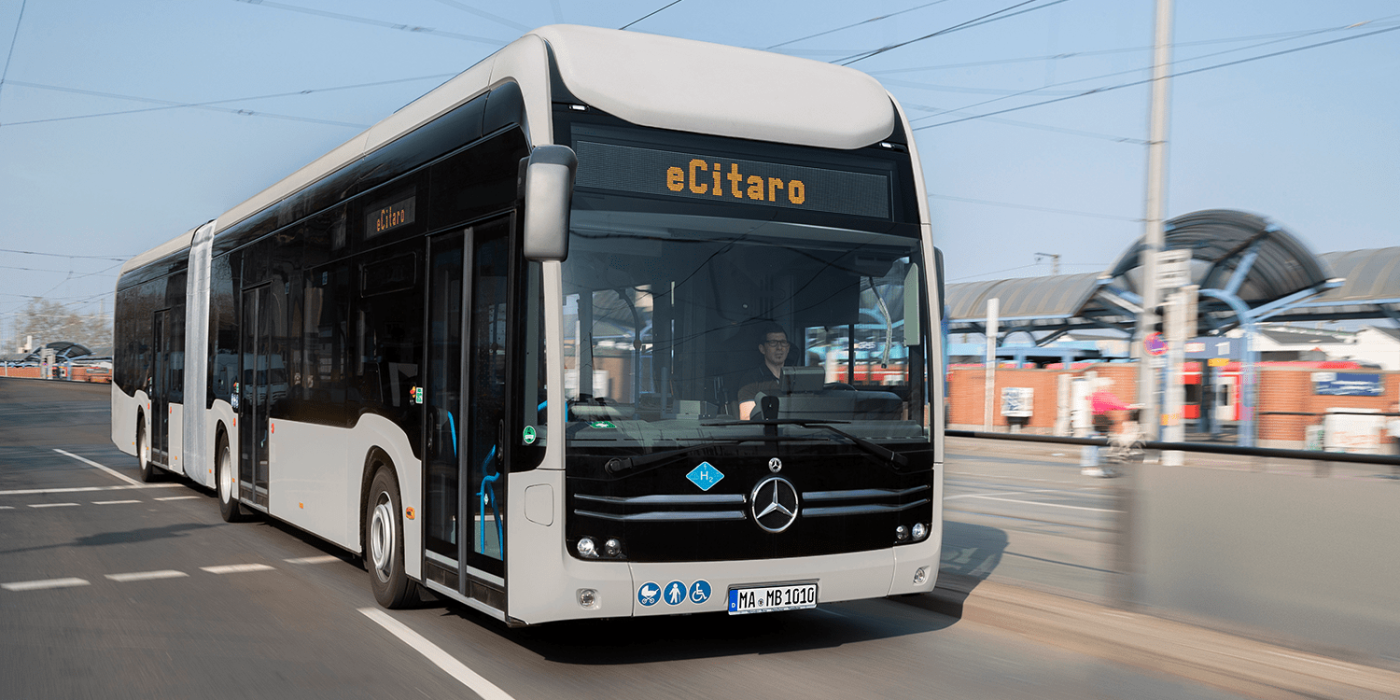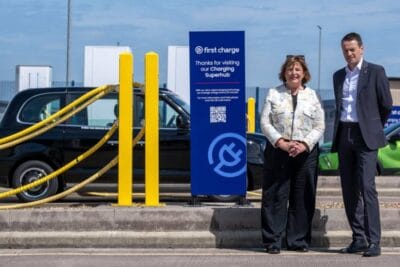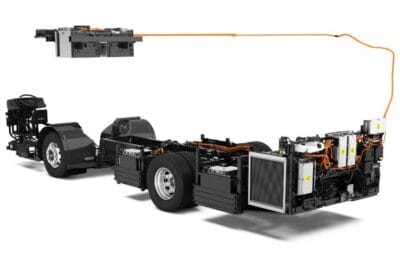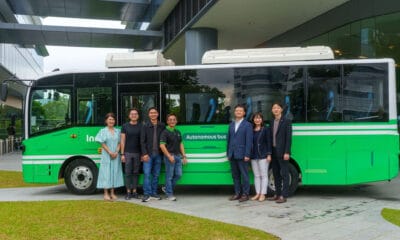Daimler Buses gets major eCitaro G order from Germany
Daimler Buses has received a significant order to deliver up to 75 electric buses with fuel cell range extenders. The German transport operator Rhein-Neckar-Verkehr (RNV) is an existing customer and says the new buses will help operations enter a new phase of electrification.
The service area is Heidelberg, and RNV wants Daimler Buses to deliver 40 eCitaro G with range extenders in 2023 and 2024; there is also an option for 35 more articulated buses by 2027.
When presenting the 18-metre bus in 2020, Daimler Buses already envisioned the fuel cell range extender option to launch in 2022. Now six battery packs (NMC3) offer a battery capacity of 392 kWh. The additional fuel cell stack converts hydrogen from six tanks (30 kg) into electricity for a combined range of more than 300 kilometres.
As for refilling the batteries and hydrogen tanks, RNV will begin work on the hydrogen bus depot in Heidelberg in the next few days. The depot will host park and charge spots for 27 buses and a hydrogen station from H2 Mobility Deutschland, which will also be available to the public. Operations shall start next year.
What is more, RNV is a recurring client. However, the company already runs a fleet of Mercedes-Benz eCitaro buses on pure battery power. They were among the first clients to receive the twelve-metre e-bus in 2019 and added another 30 vehicles this spring. The regular eCitaro buses travel up to 230 kilometres with a 441 kWh battery.
The batteries of any eCitaro, fuel cells or not, recharge when plugged in via CCS; connections are on the left and right above the front axle. Hydrogen is filled on the right above the second axle in the direction of travel.
Both the centre and rear axles of the articulated buses are powered. The electric motors near the wheel hubs produce 141 kW per wheel and a torque of 494 Nm. This results in torque of 11,000 Nm per wheel due to a fixed gear ratio.
Mirko Sgodda, Head of Marketing, Sales and Customer Services at Daimler Buses, said the new model was “supporting our customers in the further development of locally emission-free mobility around the pioneering hydrogen technology and thus hope to make our contribution to the quality of life in the cities of Mannheim, Heidelberg and Ludwigshafen.”
Martin in der Beek, Technical Managing Director of RNV, adds: “With the Mercedes-Benz articulated buses with fuel cell and hydrogen as range extender, the electrification of our bus transport enters a new phase.” The transport company has set itself the goal of converting its entire vehicle fleet to locally emission-free propulsion by 2032.
Daimler Buses recently said they would not invest in Euro-7 technology anymore but pool all resources into achieving zero-emission targets by the end of the decade, particularly in the city bus segment.
daimlertruck.com (in German)





0 Comments